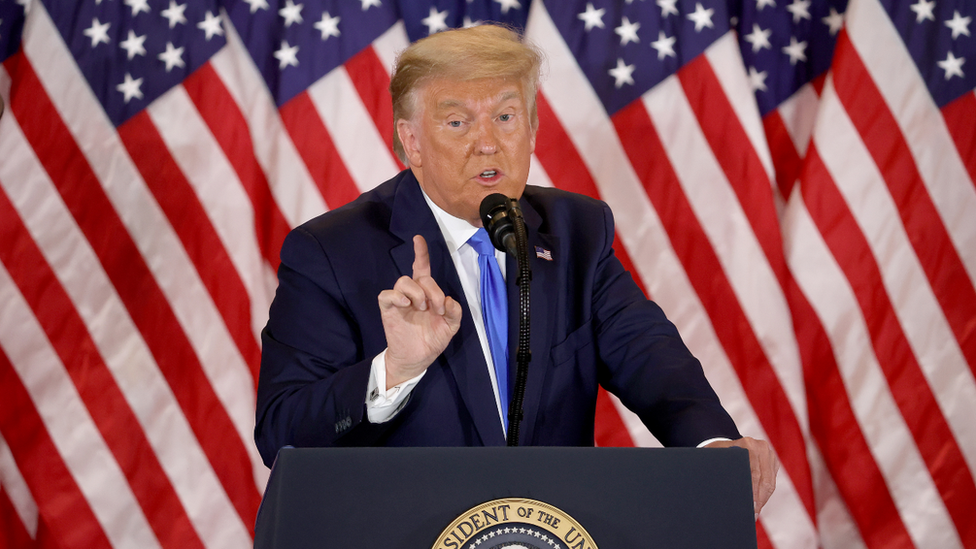NOTE: VIDEO INSIDE THE ARTICLE
The Justice Department has formally requested that New York judges unseal grand jury documents related to the high-profile investigations of Jeffrey Epstein and Ghislaine Maxwell, reigniting public scrutiny of one of the most notorious sex-trafficking cases in recent U.S. history. This request comes in the wake of newly enacted legislation designed to increase transparency in federal investigations, following intense political pressure from the White House.
Attorney General Pam Bondi invoked the recently signed Epstein Files Transparency Act, legislation championed by Congress and signed into law last week by President Donald Trump. The law mandates the release of documents within 30 days, effectively overriding previous legal arguments maintaining grand jury secrecy. Bondi argued that the legislation supersedes prior court rulings that blocked requests for access to the files, giving the Justice Department the authority to make them publicly available.
“The Act manifests a congressional intent to override some of the underlying bases for grand jury secrecy,” Bondi wrote to Judge Richard Berman, who presided over Epstein’s case, and Judge Paul Engelmayer, who oversaw Maxwell’s proceedings. While the law allows for redactions to protect ongoing investigations, Bondi’s filings signal an aggressive push for transparency in a case that has long captured public attention due to its connections to influential figures and high-level social circles.
Background on Epstein and Maxwell
Jeffrey Epstein, a New York financier, was indicted in July 2019 in Manhattan on charges of sex trafficking minors. Just a month later, he was found hanged in his federal jail cell before he could stand trial, a death that sparked widespread speculation and multiple investigations into the circumstances surrounding it. Ghislaine Maxwell, Epstein’s longtime associate, was convicted in 2021 as part of the conspiracy and is currently serving a 20-year sentence.
Earlier this year, Bondi’s initial requests to the New York courts to release the grand jury materials were denied on the basis of traditional grand jury secrecy rules. These rules are designed to protect the integrity of ongoing investigations, shield witness identities, and maintain the confidentiality of testimony that could influence future prosecutions. However, the newly enacted transparency law, supported by overwhelming bipartisan support in Congress, allows for selective disclosure of documents while still protecting sensitive information that could compromise active cases.
Trump’s Role and Political Context
President Trump, who signed the Epstein Files Transparency Act into law, has repeatedly framed the release of these materials as part of a commitment to public accountability. Despite campaigning on a pledge to make Epstein-related documents public, Trump’s administration faced internal and external criticism for delays and perceived attempts to withhold information. The tension culminated earlier this month when the House Oversight Committee released a tranche of emails from Epstein’s network that included repeated mentions of Trump, drawing renewed media attention.
Trump’s involvement has also intersected with longstanding allegations of personal association. The former president and Epstein were social acquaintances from the late 1980s through the early 2000s, with documented interactions at Trump-owned properties, including Mar-a-Lago. Reports indicate that Trump expelled Epstein from his Mar-a-Lago Club around 2007 following accusations of inappropriate behavior toward young female staff members. Epstein was later convicted in 2008 for solicitation of a minor. While Trump has publicly denied knowledge of any illegal activity by Epstein, the associations have fueled speculation and political debate surrounding the broader implications of the case.
Controversy and Accusations of Withholding Documents
Tensions within the Republican Party have also emerged over the handling of the files. Trump reportedly clashed with Republican firebrand Rep. Marjorie Taylor Greene, one of his most loyal House allies, after she accused the administration of intentionally withholding the documents. Some political observers have suggested that disputes over the files reflect broader struggles over public perception and control of high-profile information in politically sensitive cases.
GOP Rep. Thomas Massie, one of the architects of the Epstein Files Transparency Act, criticized the sudden announcement of new federal investigations by Trump into other public figures, suggesting it may serve as a “smokescreen” to distract from the full release of the Epstein files. These tensions underscore the political stakes involved in both disclosure and the timing of investigative actions, particularly as the public closely monitors developments related to Epstein’s extensive network of contacts.
Legal Context and Court Rulings
Judge Richard Berman, who oversaw the Epstein grand jury, denied a request in August from the Trump administration to release the grand jury materials. Berman’s ruling emphasized the sheer volume of investigative records in the government’s possession, noting that the grand jury files, while significant, were “merely a hearsay snippet of Jeffrey Epstein’s alleged conduct” compared to the broader investigative dossiers.
“The Government’s complete information trove would better inform the public about the Epstein case,” Berman wrote, critiquing attempts to place the responsibility for delays solely on the court. Two other judges have similarly rejected prior efforts to release grand jury testimony, citing the need to preserve confidentiality and protect the integrity of ongoing investigations into Epstein’s decades-long sexual exploitation of young women and girls.
The Justice Department noted that the only witness to testify before the Epstein grand jury was an FBI agent whose testimony was largely based on secondhand information rather than direct knowledge of the case. The grand jury met on June 18 and July 2, 2019, and the indictment followed quickly thereafter. Epstein was arrested on July 6, 2019, and his subsequent death in custody on August 10, 2019, was ruled a suicide by authorities, though it has remained the subject of intense public speculation and multiple inquiries.
Impact of the New Legislation
The Epstein Files Transparency Act, now invoked by Attorney General Bondi, is designed to ensure that key documents are made public within a defined timeframe, while allowing for selective redactions to protect active investigations. This law represents one of the most significant legislative efforts to release high-profile grand jury materials in U.S. history. It is part of a broader push for government transparency in cases involving sexual abuse and exploitation, reflecting both public demand for accountability and legislative recognition of the importance of disclosure in building public trust.
The legislation has been hailed by advocates for victims’ rights as a critical step in exposing the full scope of Epstein’s criminal enterprise and the networks that enabled it. It also has the potential to shed light on the extent of Maxwell’s involvement and any possible connections to other influential figures. While the law allows redactions to safeguard ongoing federal investigations, the release of documents is expected to provide unprecedented insight into the grand jury proceedings, previously shielded by long-standing secrecy rules.
Victims and Ongoing Repercussions
Virginia Giuffre, one of Epstein’s known victims who was trafficked as a teenager, died by suicide earlier this year. In her memoir, she noted that she was unaware of any wrongdoing by Trump, despite frequent media speculation regarding his association with Epstein. The unsealing of documents is anticipated to further clarify the scope of interactions among high-profile figures and provide victims and the public with a fuller understanding of the grand jury proceedings.
The release of materials is also likely to inform ongoing discussions about accountability, corporate responsibility, and the role of elite networks in facilitating sexual exploitation. Public scrutiny is expected to intensify as documents emerge, potentially affecting both political and legal landscapes.
Looking Ahead
Attorney General Bondi’s motion to unseal the documents marks a decisive shift in the handling of the Epstein grand jury files. While the judge retains discretion over the extent of disclosure, the new legislation provides a clear legal mandate that significantly reduces the likelihood of further delays. Experts anticipate that the public release of the files will prompt renewed media analysis, scholarly research, and public debate over the systemic issues highlighted by Epstein’s crimes.
The Epstein case, including the role of Maxwell and the broader network of associates, remains one of the most scrutinized criminal investigations of the past decade. With the new law in place and the Justice Department actively pursuing disclosure, the coming weeks are expected to see unprecedented access to materials that were previously restricted. Legal scholars, journalists, and advocacy organizations are preparing to examine the documents in detail, potentially reshaping public understanding of the case and the mechanisms of accountability that followed.
In summary, the Justice Department’s latest filing signals an aggressive push toward transparency, prompted by legislative action and public demand. The invocation of the Epstein Files Transparency Act by Attorney General Pam Bondi effectively supersedes prior court rulings that upheld grand jury secrecy, opening the door for the release of materials that could clarify longstanding questions about Epstein’s criminal network, Maxwell’s role, and the connections to high-profile individuals who have drawn media scrutiny. As the court reviews the motion, the nation awaits the unsealing of documents that could finally provide a more complete picture of one of the most notorious sex-trafficking cases in modern American history.
PLAY:

Emily Johnson is a critically acclaimed essayist and novelist known for her thought-provoking works centered on feminism, women’s rights, and modern relationships. Born and raised in Portland, Oregon, Emily grew up with a deep love of books, often spending her afternoons at her local library. She went on to study literature and gender studies at UCLA, where she became deeply involved in activism and began publishing essays in campus journals. Her debut essay collection, Voices Unbound, struck a chord with readers nationwide for its fearless exploration of gender dynamics, identity, and the challenges faced by women in contemporary society. Emily later transitioned into fiction, writing novels that balance compelling storytelling with social commentary. Her protagonists are often strong, multidimensional women navigating love, ambition, and the struggles of everyday life, making her a favorite among readers who crave authentic, relatable narratives. Critics praise her ability to merge personal intimacy with universal themes. Off the page, Emily is an advocate for women in publishing, leading workshops that encourage young female writers to embrace their voices. She lives in Seattle with her partner and two rescue cats, where she continues to write, teach, and inspire a new generation of storytellers.









